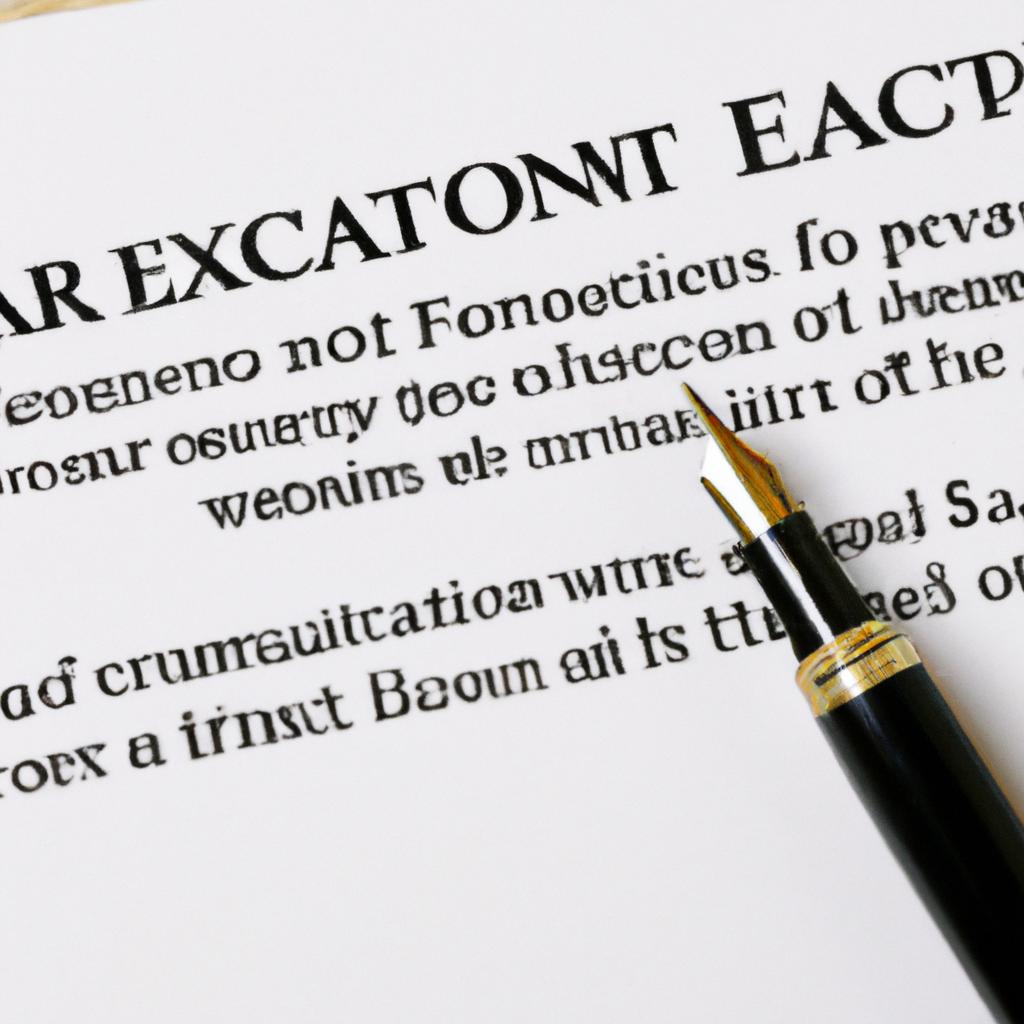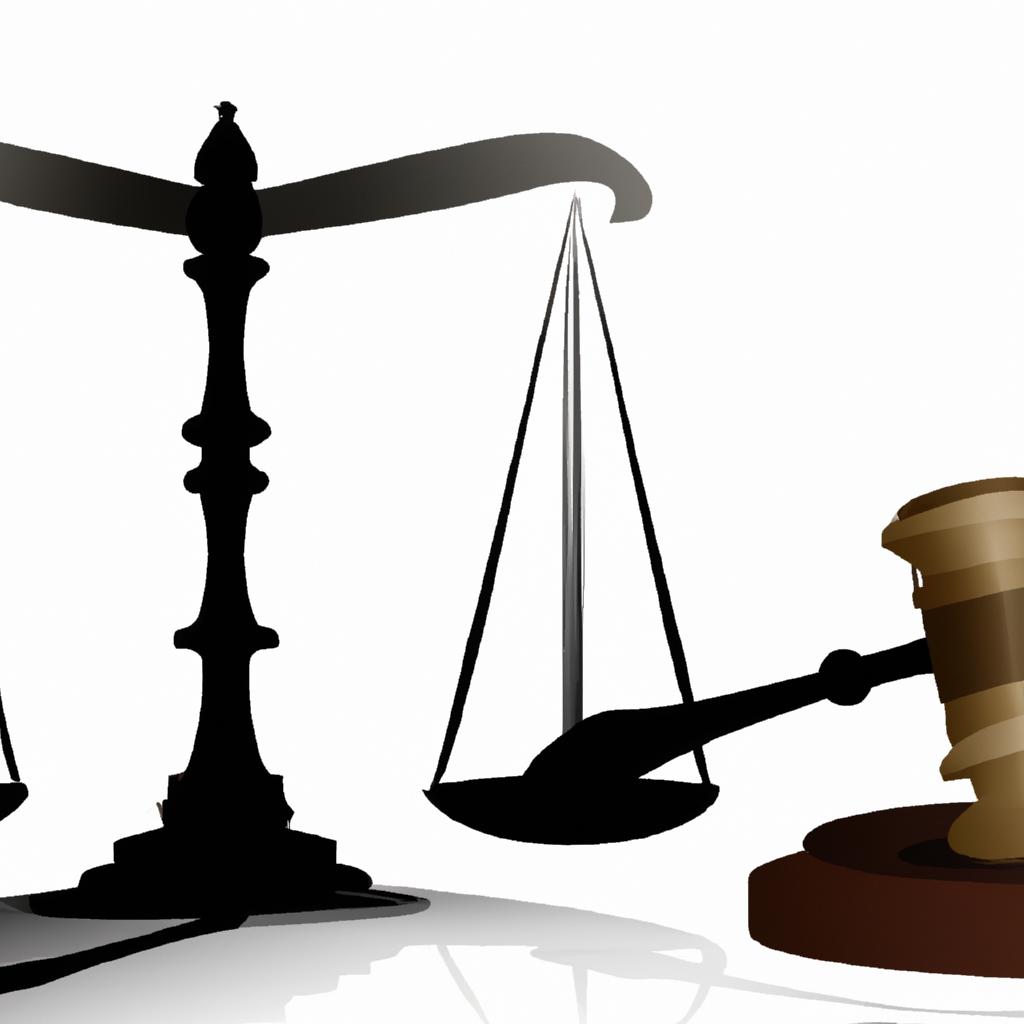As seasoned legal professionals at Morgan Legal Group in New York City, we understand the importance of proper estate planning. One common question that arises in this process is whether or not an executor is necessary for a will. In this article, we will delve into the intricacies of this decision, outlining the role of an executor and offering guidance on how to navigate this critical aspect of your estate plan. Join us as we unravel the complexities of will execution and provide clarity on this essential element of estate planning.
Understanding the Role of an Executor in Your Will
When creating a will, one important decision you will need to make is choosing an executor. An executor is responsible for carrying out your final wishes as outlined in your will, managing your estate, and distributing assets to your beneficiaries. It is crucial to select someone you trust and who is capable of handling the responsibilities that come with being an executor.
Some key roles of an executor include:
- Managing your finances and assets
- Distributing assets to beneficiaries
- Handling any outstanding debts and taxes
- Ensuring the terms of your will are carried out

Key Considerations When Choosing an Executor for Your Estate
When choosing an executor for your estate, there are several key considerations to keep in mind. First and foremost, you should select someone who is trustworthy, responsible, and organized. This individual will be responsible for carrying out your final wishes and ensuring that your assets are distributed according to your wishes.
It is also important to choose someone who is familiar with estate planning and probate laws. This will help ensure that the probate process runs smoothly and efficiently. Additionally, consider selecting someone who is geographically close to where your assets are located, as this will make it easier for them to manage your estate. Finally, make sure to discuss your decision with the person you choose to be your executor to ensure they are willing and able to take on this important responsibility.

The Importance of Seeking Legal Guidance in Selecting an Executor
When it comes to ensuring the proper administration of your estate, selecting the right executor is of utmost importance. An executor is responsible for carrying out the terms of your will and ensuring that your assets are distributed according to your wishes. Without a competent and trustworthy executor, the process can be rife with challenges and disputes that may jeopardize the integrity of your final wishes.
It is crucial to seek legal guidance when selecting an executor to ensure that you are making an informed decision that aligns with your unique circumstances. A knowledgeable estate planning attorney can provide valuable insight into the qualities to look for in an executor, as well as assist in navigating the complexities of appointing an executor. By enlisting the help of legal professionals, you can minimize the risk of potential conflicts and ensure that your estate is managed efficiently and effectively.

Factors to Consider When Deciding Whether You Need an Executor for Your Will
When contemplating whether or not to appoint an executor for your will, there are several crucial factors to take into account:
- Complexity of your assets: If you have a diverse portfolio of assets, such as real estate, investments, and valuable personal property, having an executor to manage the distribution of these assets can help ensure they are handled properly.
- Family dynamics: If you anticipate potential conflicts among your beneficiaries, having an impartial executor can help mitigate disputes and ensure your wishes are carried out according to your will.
| Factor | Importance |
| Legal expertise of beneficiaries | High |
| Health status of testator | Medium |
| Geographical location of beneficiaries | Low |
Q&A
Q: Do I need an executor for my will?
A: Yes, having an executor for your will is highly recommended as they play a crucial role in ensuring your final wishes are carried out smoothly.
Q: What does an executor do?
A: An executor is responsible for managing the distribution of your assets, settling any debts, and handling other administrative tasks related to your estate after your passing.
Q: Can I choose anyone to be my executor?
A: You can choose almost anyone to be your executor, as long as they are of legal age and mentally competent. It is important to choose someone you trust and who is capable of handling the responsibilities.
Q: What happens if I don’t appoint an executor?
A: If you do not appoint an executor in your will, the court will appoint someone to handle your estate during the probate process. This can lead to delays and complications in distributing your assets.
Q: How do I choose the right executor?
A: Consider someone who is organized, responsible, and trustworthy. It is also a good idea to discuss the role with the person beforehand to ensure they are willing and able to take on the responsibilities.
Q: Can I have more than one executor?
A: Yes, you can appoint multiple executors to share the responsibilities. However, it is important to choose individuals who can work together effectively and make decisions collectively.
Q: What happens if my executor is unable to fulfill their duties?
A: If your chosen executor is unable to fulfill their duties, a backup executor named in your will can step in. If there is no backup named, the court will appoint a replacement executor.
Closing Remarks
In conclusion, determining whether or not you need an executor for your will ultimately depends on the complexity of your estate and your personal preferences. While having an executor can provide peace of mind and ensure that your wishes are carried out efficiently, it is not always necessary. It is important to carefully consider your options and consult with legal professionals to make the best decision for your unique situation. Remember, estate planning is a vital aspect of securing your legacy and protecting your loved ones, so take the time to ensure that your affairs are in order.
 Meta Title: The Importance of Having an Executor for Your Will Explained
Meta Title: The Importance of Having an Executor for Your Will Explained
Meta Description: Do you really need an executor for your will? Find out here why having an executor is crucial for carrying out your final wishes and protecting your assets.
Have you ever wondered what happens to your assets and valuables after you pass away? Who will be responsible for distributing them according to your wishes? These are important questions to consider, and the best way to ensure that your final wishes are carried out is by having an executor for your will.
An executor is a person named in your will who is responsible for overseeing the distribution of your assets according to your wishes. They play a crucial role in the handling of your estate and ensuring that your loved ones receive what you have left for them. In this article, we’ll dive into the importance of having an executor for your will and the benefits that come with it.
Why Do You Need an Executor for Your Will?
1. To Ensure Your Final Wishes Are Carried Out
The primary role of an executor is to make sure that your final wishes are fulfilled. They will ensure that your assets are distributed according to your will and that any specific instructions you have left are followed. Without an executor, your loved ones may struggle to understand and carry out your wishes, leading to potential disputes and delays in the distribution of your assets.
2. To Protect Your Assets
Having an executor for your will can also help protect your assets from being mismanaged or misused. The executor has a legal obligation to act in the best interests of the beneficiaries and safeguard their inheritance. This can be particularly important in cases where minors or vulnerable individuals are named as beneficiaries.
3. To Handle Legal and Financial Responsibilities
Administering a will involves a lot of legal and financial responsibilities, some of which can be complex and time-consuming. An executor is responsible for paying any outstanding debts and taxes on behalf of the deceased, as well as managing the distribution of assets. They may also need to work with lawyers and accountants to ensure everything is done correctly and in line with the law.
4. To Avoid Family Disputes
Family disputes over the distribution of assets after someone’s death are not uncommon. By naming an executor, you can help prevent any conflicts or disagreements among your loved ones. The executor acts as a neutral party, making decisions based on your wishes and ensuring that all beneficiaries are treated fairly.
The Benefits of Having an Executor for Your Will
1. Peace of Mind
Knowing that you have someone you trust to carry out your final wishes can bring immense peace of mind. It ensures that your loved ones will be taken care of and that your assets will be distributed as you intended.
2. Saves Time and Effort
Grieving a loved one’s loss can be difficult, and adding the stress of managing their estate can be overwhelming. Having an executor takes this burden off the shoulders of your loved ones, allowing them to focus on mourning and healing. An executor also has the knowledge and experience to efficiently handle the legal and financial aspects of administering a will, saving your loved ones time and effort.
3. Reduces the Likelihood of Disputes
As mentioned earlier, having an executor can help avoid potential disputes among family members. By clearly outlining your wishes in your will and trusting an impartial executor to carry them out, you can minimize any conflict or tension between your loved ones.
How to Choose the Right Executor for Your Will
Choosing the right executor is crucial for a smooth and successful administration of your estate. Here are a few qualities to consider when selecting an executor:
– Trustworthy and responsible
– Organized and detail-oriented
– Good communication skills
– Willingness to take on the responsibility
– Knowledgeable about estate laws and financial matters
You can choose anyone to be the executor of your will, including a family member, friend, or a professional such as an attorney or accountant. It is essential to have a conversation with the person you have in mind beforehand to ensure they are willing and able to take on this responsibility. You may also want to consider naming a second executor in case your first choice is unable or unwilling to serve.
In conclusion, having an executor for your will is crucial for ensuring your final wishes are carried out and protecting your assets. It brings peace of mind, saves time and effort, and reduces the likelihood of family disputes. When choosing an executor, make sure to select someone you trust and have open communication with. By doing so, you can have confidence that your loved ones will be taken care of after you are gone.

